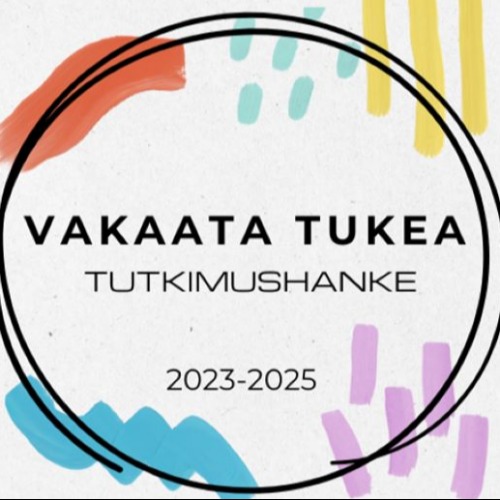
Vakaata Tukea - Effective Support for Early Childhood Education Reform
Funders

The reform to the Early Childhood Education Act, from the 1 August 2022, created a unified national support system, binding on all early childhood education providers and service providers. The system consists of general, intensified, and specific support, related forms of support and decision-making processes.
The aim of the VAKAATA TUKEA research project is to investigate the implementation of support, the functionality of the support system and the quality of support for the child in day care centres and family day care. The research focuses on both municipal and private early childhood education.
Leaders
Effective Support for Early Childhood Education Reform (VAKAATA TUKEA)
Opetus- ja kulttuuriministeriön julkaisuja 2026:4
The project examines the practices, processes and implementation of the three-tiered support.
The reform to the Early Childhood Education Act, from the 1st of August 2022, created a unified national support system, binding act on all early childhood education providers and service providers. The system consists of general, intensified and specific support, related forms of support and decision-making processes. An effective support system requires the appropriateness and functionality of child support and related practices, as well as a systematic approach to everyday life based on assessing the effectiveness of support. However, there is currently no information on the introduction of the early childhood education support system and its impact on the support received by children.
The research is carried out in collaboration between three universities. School of Applied Educational Science and Teacher Education (Skope) at the University of Eastern Finland is leading the research project. School of Educational Sciences and Psychology (Kapsy) is also involved at the University of Eastern Finland. In addition, the University of Tampere and Åbo Akademi University are involved. Both early childhood education and special education are represented in the project.
The results of the research project aim to provide answers to the following questions:
- How is the best interests of the child and the child’s right to support defined and considered when arranging support?
- How is the child’s right to support and continuity of support realized in the child’s everyday life in different service forms and situations?
- What kind of practices have been created to support child participation and agency in municipalities in relation to the organization of child support?
- How do early childhood education professional groups act as providers of support?
- What is and how is the consultation provided by special education teachers, full-time and part-time special education and co-teaching implemented?
- How many municipalities have special groups, integrated groups and reduced groups at the time of the survey?
- To what extent is the impact assessment of the implementation of the aid carried out, what methods are used in the assessment and how are the results of the impact assessment used in the development of the aid practices?
- How much resources are available in municipalities to provide support and to what extent are the resources allocated to support considered sufficient?
Files
5 itemsLeaders
Professors
Senior Researchers
-

Noora Heiskanen
Associate ProfessorSchool of Educational Sciences and Psychology, Philosophical Faculty -

Marja Syrjämäki
University LecturerSchool of Educational Sciences and Psychology, Philosophical Faculty
Doctoral Researchers
-
Anna Mikkola
Project ResearcherSchool of Educational Sciences and Psychology, Philosophical Faculty -

Kata Kumpulainen
University TeacherSchool of Applied Educational Science and Teacher Education, Philosophical Faculty -

Mirva Poikola
Postdoctoral ResearcherSchool of Educational Sciences and Psychology, Philosophical Faculty

